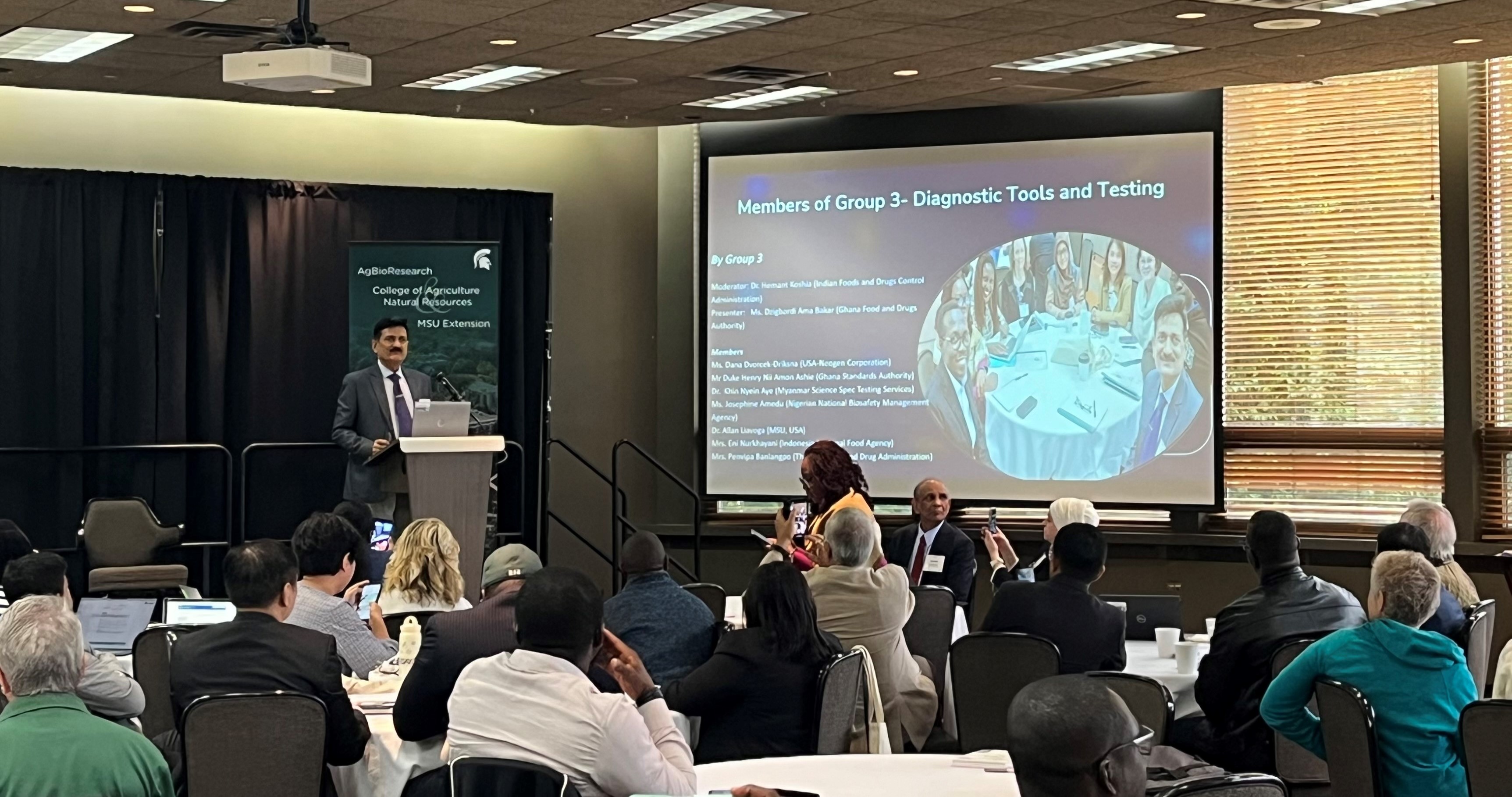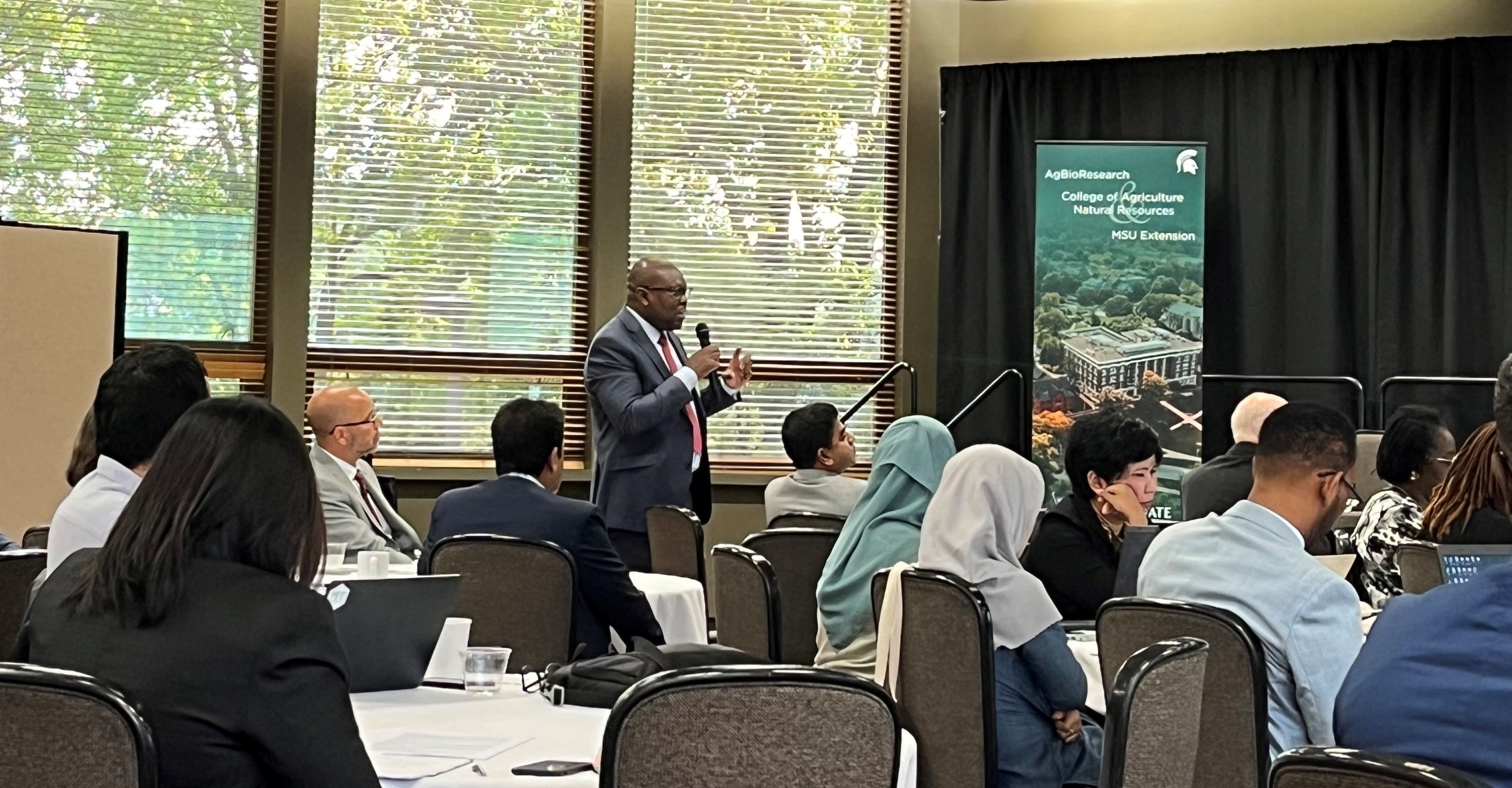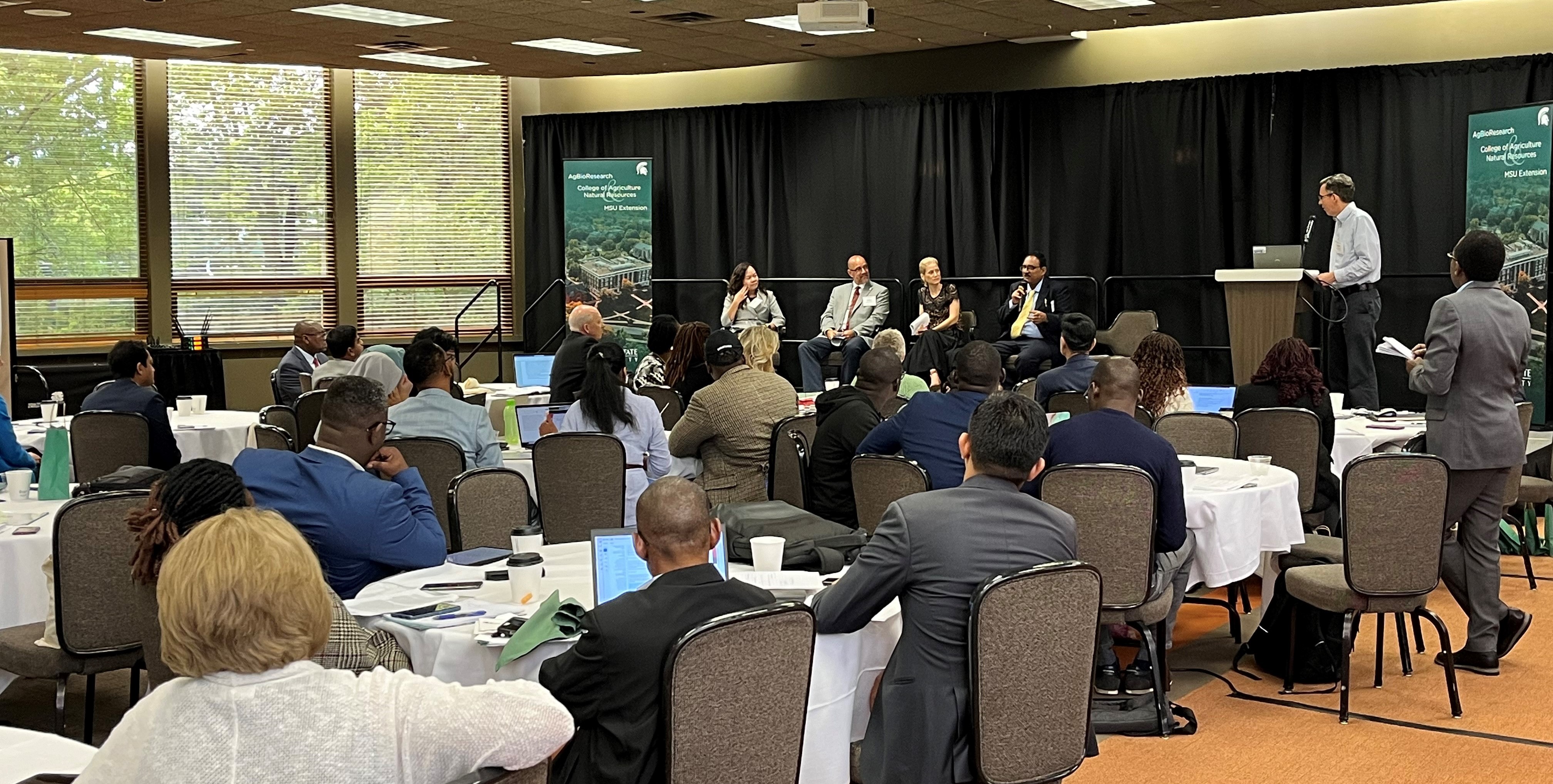Global Food Safety Symposium hosts international leaders in food policy, research
Global leaders in food safety innovation, research and policy gathered for the Global Food Safety Symposium, celebrating 25 years of the MSU International Food Safety Short Course, a program focusing on food safety policy and program implementation.

East Lansing, MI -- Leaders in food safety innovation, research and policy from across the globe gathered at Michigan State University (MSU) this July, to discuss issues and topics related to food safety and food security during the Global Food Safety Symposium.
The symposium, hosted by the College of Agriculture and Natural Resources (CANR), brought together more than 70 attendees from 24 countries, to collaborate on critical issues and emerging trends in the food safety landscape through keynote addresses and interactive panel discussions with leading field experts.
The symposium also celebrated and coincided with the 25th anniversary of the International Short Course in Food Safety. The International Short Course in Food Safety is a one-week program offered at MSU that addresses growing global concerns about food safety amidst increasing demand and international trade complexities.

The program covers topics including the impact of food systems on international trade, regulatory and policy issues and the identification and management of hazards in food production. Incorporating field visits to food processing sites in Michigan, the program offers participants practical insight into real-world practices and aims to empower participants to navigate the complex challenges facing food safety by providing them with the necessary knowledge and experience to affect change in their home countries.
Dr. Karim Maredia, director of CANR International Programs and a long-time facilitator of the International Short Course in Food Safety, believes the program is key in educating and connecting leaders in food safety to help affect positive change.
“Food safety is a global issue and education in this area is crucial,” noted Maredia. “We’ve trained more than 800 food safety professionals, which has created an excellent global network that is actively collaborating to make a difference.”

Dr. H. G. Koshia, commissioner of the Food and Drugs Administration for the Government of Gujarat in India, commended the short course for providing him with knowledge and training that has allowed him to enhance public health in India. Reflecting on his achievements since participating in the short course a decade ago, Koshia highlights the impact of his training in achieving top food safety rankings for Gujarat.
“In my role, my responsibility is to safeguard the public health of the state of Gujarat, which has almost 67 million people, by ensuring the food they consume is safe,” said Koshia. “In 2017, the Food Safety and Standards Authority of India released the Food Safety Index, which is a federal competition surrounding various parameters of food safety. The state of Gujarat was the top-performing state for three years running. I credit my training during the short course for that achievement, as that experience broadened my understanding of food safety and taught me how to work impactfully with limited resources to protect and promote public health in India.”

Dr. Allan Liavoga, a food safety research associate with CANR, participated in the short course in 2008 and has since contributed to food safety programs in Kenya and across Africa. He credits the program for shifting his approach to food safety best practices and enhancing his understanding of evidence-based science in regulatory decision-making. Liavoga said the exchange of knowledge and collaborative partnerships fostered by the program have been vital in enhancing systems in Africa.
“Over the years I’ve spent time building regulatory systems in Africa, and understanding the American system and processes has been useful for the African countries trying to build their systems. The Americans are also learning from us and how we’re trying to tackle our problems. This is important because food safety in Kenya is also food safety in the U.S. as you have food moving from one country to another. From an African perspective, having worked in capacity building, programs like the short course must be sustained for sharing knowledge and experience because food safety in one country affects impacts others.”

Rebecca Lopez-Calvo, director of the graduate program in food science at the University of Costa Rica, highlighted the significant role of international collaboration in promoting food safety education.
“I visited MSU 18 years ago to work with Dr. Karim Maredia and Dr. Cathy Weir to develop curriculum for a food safety course at the University of Costa Rica. We’ve now successfully taught the course for over 15 years,” said Lopez-Calvo. “The course is offered to all university students, not just those studying food science, so we’re able to educate general consumers about the food sector and what the industry and producers are doing to ensure food safety. If not for our partnership with MSU, we wouldn’t have been able to create this course and promote the importance of food safety to our communities.”
Looking ahead, Maredia envisions expanding the program’s reach and leveraging global expertise to enhance impact.
“In the future, we are looking at taking this program overseas, to offer it in different regions of the world. We’d also like to develop some online components, utilizing expertise not only from MSU and the U.S. but also international expertise, to broaden our global reach,” Maredia said.



 Print
Print Email
Email




